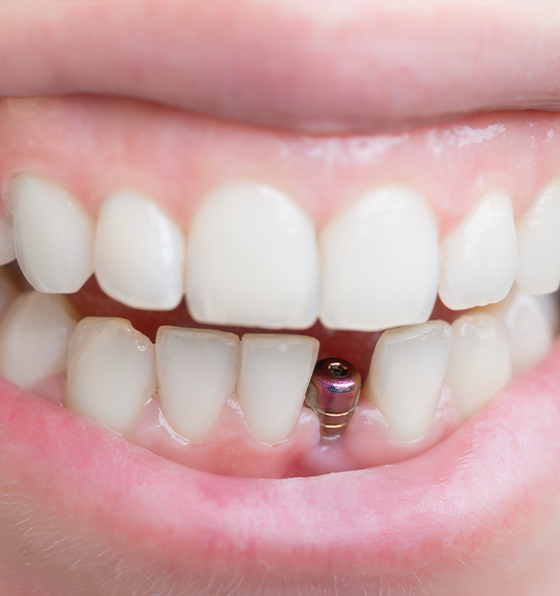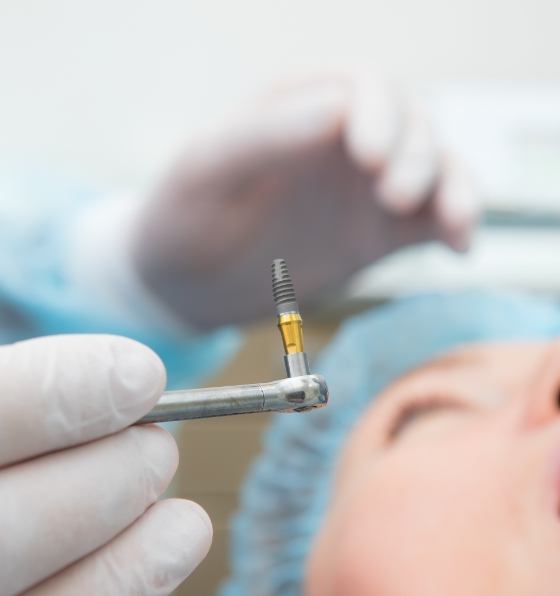Dental Implant Failure & Salvage – Lincoln, NE
How to Spot and Stop Dental Implant Failure
Compared to other tooth replacement solutions, dental implants have a high success rate. In fact, 95 percent of dental implants placed are still successful five years or more afterward. This means that choosing to get implants is a pretty safe bet and that you should feel confident about the outcome of implant treatment. However, the remaining 5 percent may experience failure. At Pioneer Greens Dentistry, we want you to know all the facts, how to recognize failure, and know that our team is on your side to correct the issue. If you think your implants are failing, contact us as soon as possible and schedule an appointment!
Why Do Dental Implants Fail?

In those rare situations when an implant fails, it usually is the result of an infection called peri-implantitis. Like gum disease, peri-implantitis weakens the supporting tissue that holds onto an implant. Over time, it degrades the jawbone and gum tissue, making implants feel loose. This infection is most often caused by poor oral hygiene, but other factors sometimes play a part as well.
If the jawbone does not grow around the implant properly right after placement, this is called failed osseointegration, which can occur because of a pre-existing condition like osteoarthritis or uncontrolled diabetes. However, we try to screen you for these kinds of problems beforehand, so you are set up for success. Physical trauma and other conditions like cancer may also interfere with your implants.
Symptoms of Failed Dental Implants

There are basically two types of failure: one that occurs soon after the placement (called early failure) and the other, which happens after the jawbone has fully integrated with the implant (called late failure). Regardless of timing or cause, dental implant failure often comes with these signs:
- Loose implant. Your prosthetic may feel loose because the restoration needs to be adjusted or reaffixed. However, it could be a symptom of failure, so it’s best to let us know about it as soon as possible.
- Unusual pain. Other than some initial soreness after the implant placement procedure, your implant should feel completely natural and comfortable. If you experience severe pain, it likely points to a complication needing immediate attention.
- Bleeding, pus, or swelling. These are all indications of an infection. Contact us right away!
- Difficulty chewing. After your dental implants have the restorations attached, you should have the ability to eat basically anything. Trouble chewing is an obvious sign of something amiss.
How Dental Implant Salvage Works

If you suspect a problem with your implants, you need to bring it to our attention immediately. The sooner the better! In some cases, especially when implant failure is caught and treated as early as possible, we are able to save the implant through conservative treatments like a deep cleaning of your teeth and antibiotics. In others, however, damage to the surrounding tissue may be such that we need to remove the implant entirely. After we’ve restored your oral health, perhaps through a bone graft or gum disease therapy, we may consider revisiting the idea of dental implants.
I Need a Checkup & Cleaning I Need a Dentist for My Child I am Worried About Gum Disease I Have a Cavity or Broken Tooth I am Missing One or More Teeth I Want to Enhance My Smile I Want a Straighter Smile I am Scared of the Dentist I'm Having Trouble Sleeping I Have a Dental Emergency View Our Services
